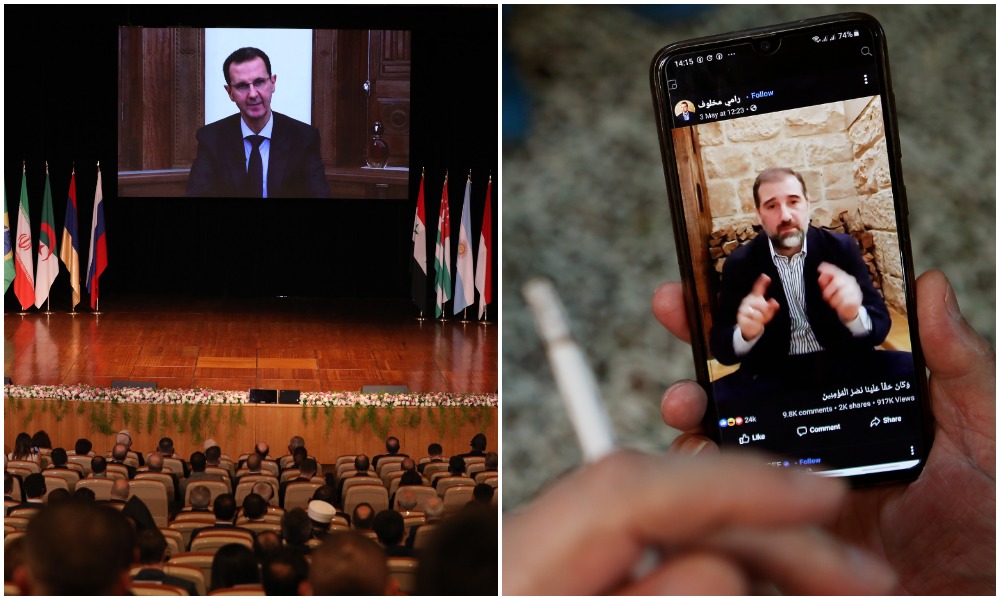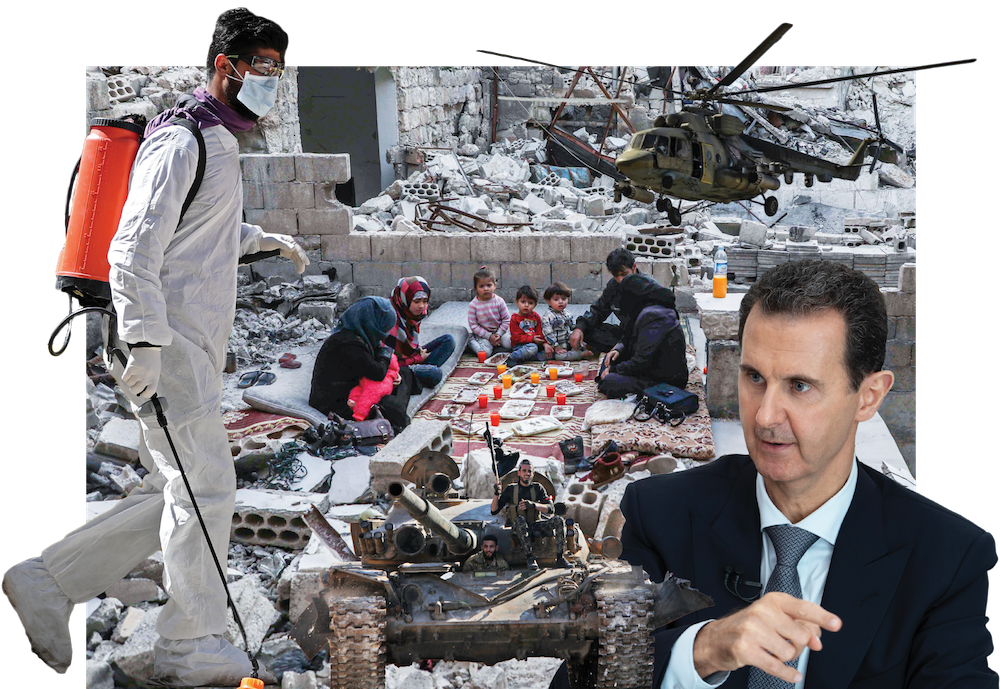MISSOURI, US: Few people around the world seem likely to rue the end of 2020, a year that proved trying for the entire world. For the long-suffering Syrian people, this seems doubly true — COVID-19 probably struck most Syrians as just one more in a litany of risks and hardships they have been facing for years, and hardly the most dangerous one at that.
Even as former Daesh bases are transformed into COVID-19 wards in places like Manbij and Tabqa (near Raqqa), most coronavirus cases probably go unreported. With a troubling surge in infections, Syrians lack the means or the tools to deal with yet one more serious threat. As a result, yet more people die.
For the international community, the coronavirus pandemic also gave them one more reason to turn their eyes from a humanitarian catastrophe that few want to hear about any more. A combination of “Syrian news fatigue” and the natural tendency to focus more on one’s own problems left the Syrian tragedy off most news media’s radar in 2020.

As 2020 comes to a close, perhaps we should therefore at least take the opportunity to consider the continuing horror in Syria. This year brought Syria new statistical records of the worst kind: The death toll now stands at roughly 500,000.
The number of displaced Syrians is a staggering 13 million (roughly half of Syria’s pre-war population). A bit less than half of the displaced are refugees — meaning they have crossed an international border and now reside outside of Syria (mostly in Turkey, Lebanon, Jordan and Iraqi Kurdistan) – while more than half are displaced within Syria.

Of the roughly 6.2 million displaced within Syria, large numbers are in the north: Sunni Arab opposition fighters, their families and others fearing the regime have coalesced in Idlib province, the last bastion of the Syrian rebellion.
At the same time, hundreds of thousands of Syrian Kurds, Christians, Yazidis and secular Arab Sunnis fled Turkey’s 2018 and 2019 invasions of Afrin and areas east of Afrin and remain displaced as well. While Ankara in 2019 outlined a plan to move hundreds of thousands or more of the Syrian refugees in Turkey to the new areas in Syria that it now occupies, few proved willing to go.
People generally prefer a safe return to the part of their home country they are actually from, rather than going to occupy someone else’s house in a completely different (and impoverished) region. Those that Turkey displaced in the north have seen their homes, farms and businesses occupied by Ankara’s Islamist proxy Syrian militias and face no prospect of returning under such circumstances.

In still Kurdish-controlled parts of northeastern Syria (often called “Rojava”), the COVID-19 pandemic meant more border closings and even less international aid than before. The UN even acceded to the Assad government’s demand that any assistance for these areas — including even testing for COVID-19 — pass through Damascus. As a result, little gets through to Rojava. Even test results for COVID-19 come back from Damascus months late if at all.
INNUMBERS
Syria
* 207,000 – Civilian casualties of Syrian war since 2011.
* 25,000 – Number of civilian casualties who are children.
* 31% – Proportion of housing units damaged or destroyed.
* 6.5m – People internally displaced by war as of 2019.
* 6.65 – Total number of Syrian refugees as of 2018.
* 41,280 – Syrian asylum-seekers in Germany in 2019.
In Idlib, people continue to fear the Assad regime more than anything. Few harbor any doubts about the regime’s desire and willingness to settle scores with those who rose up in rebellion in 2011. The past year saw Assad’s army and pro-Assad militias continue to press in on Idlib province, enjoying Russian air support and bombing runs as they do so. Turkey, whose presence in Idlib is welcomed by most of the people there (unlike in Afrin and other predominantly Kurdish areas east of it), spent the year abandoning an increasing number of its outposts in Idlib.
Many therefore fear an imminent return of the regime and resulting roundups and massacres — all while the world averts its eyes. The people of Idlib have nowhere left to run to except Turkey, which with a plummeting economy and some 3.5 million Syrian refugees already within its borders, does not want to admit more. Especially in the COVID-19 era, what limited international aid people in Idlib and other Syrian areas enjoyed has plummeted to next to nothing.

The areas of Syria under Assad’s control also witnessed more of an economic downturn during the past year. With the Syrian pound next to worthless, zero foreign investment and aid from Iran and Russia mostly limited to military matters, it would be hard to overstate the extent of Syrian economic collapse.
A financial crisis this year in neighboring Lebanon, where many Syrians kept what meager savings they had, further exacerbated the situation. Lebanese banks froze withdrawals from depositors. Some 80 percent of Syrians now live below the poverty line. Strapped for cash, the Assad regime even turned on some of its own economic elite — trying to squeeze them for money to help prop up the state.
Beginning in April, an apparent row among top members of the ruling family erupted straight into public view. On one side of the dispute was Bashar Assad’s cousin Rami Makhlouf, whose father Mohammed Makhlouf was the brother of Anisa Assad, the late mother of Bashar.

On the other side was the regime, which means Bashar and possibly his wife Asma, which was demanding that Syriatel, Rami Makhlouf’s telecoms company, pay some $185 million in back taxes.
On April 30, Rami Makhlouf posted the first of a series of videos on Facebook decrying the government’s actions against him and his financial empire. The clash between the Makhlouf and Assad families was viewed by many as a fight mainly over a revenue pie that has shrunk drastically since the outbreak of the civil war in 2011.
Also in 2020, new protests broke out in southern Syria, even in solidly regime-held area, over the worsening economic situation.
With much of Syria still a mass of rubble, few seem capable of discerning any light at the end of the tunnel. International pledges of assistance to rebuild and even foreign aid workers arriving in person both remain unlikely.
The rest of the world remains focused on COVID-19 and their own economic woes. But without such outside help, the Assad regime only reasserts its iron grip on a devastated landscape and hopeless people.
—————————
David Romano is Thomas G. Strong Professor of Middle East Politics at Missouri State University

Hundreds of Syrians flee as refugee camp torched in LebanonUS expands sanctions against Asma Assad and Syrian leader’s ‘toxic mafia’ familyAlarm bells ring again at UN over humanitarian crisis in SyriaBashar Assad’s uncle convicted of money laundering and stealing from Syrian state

